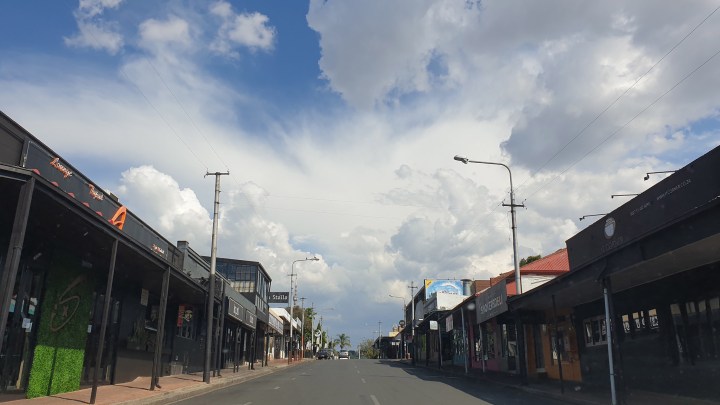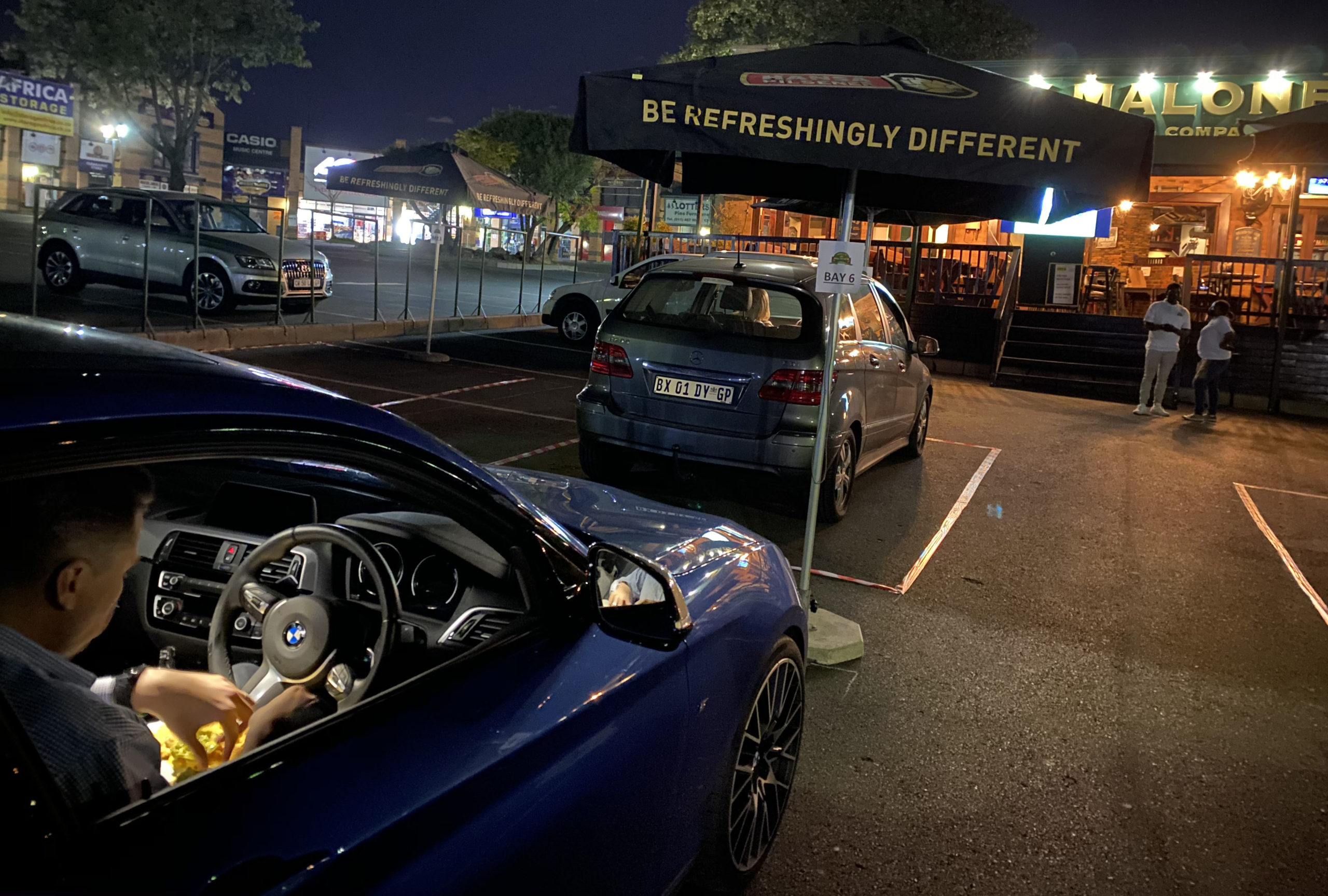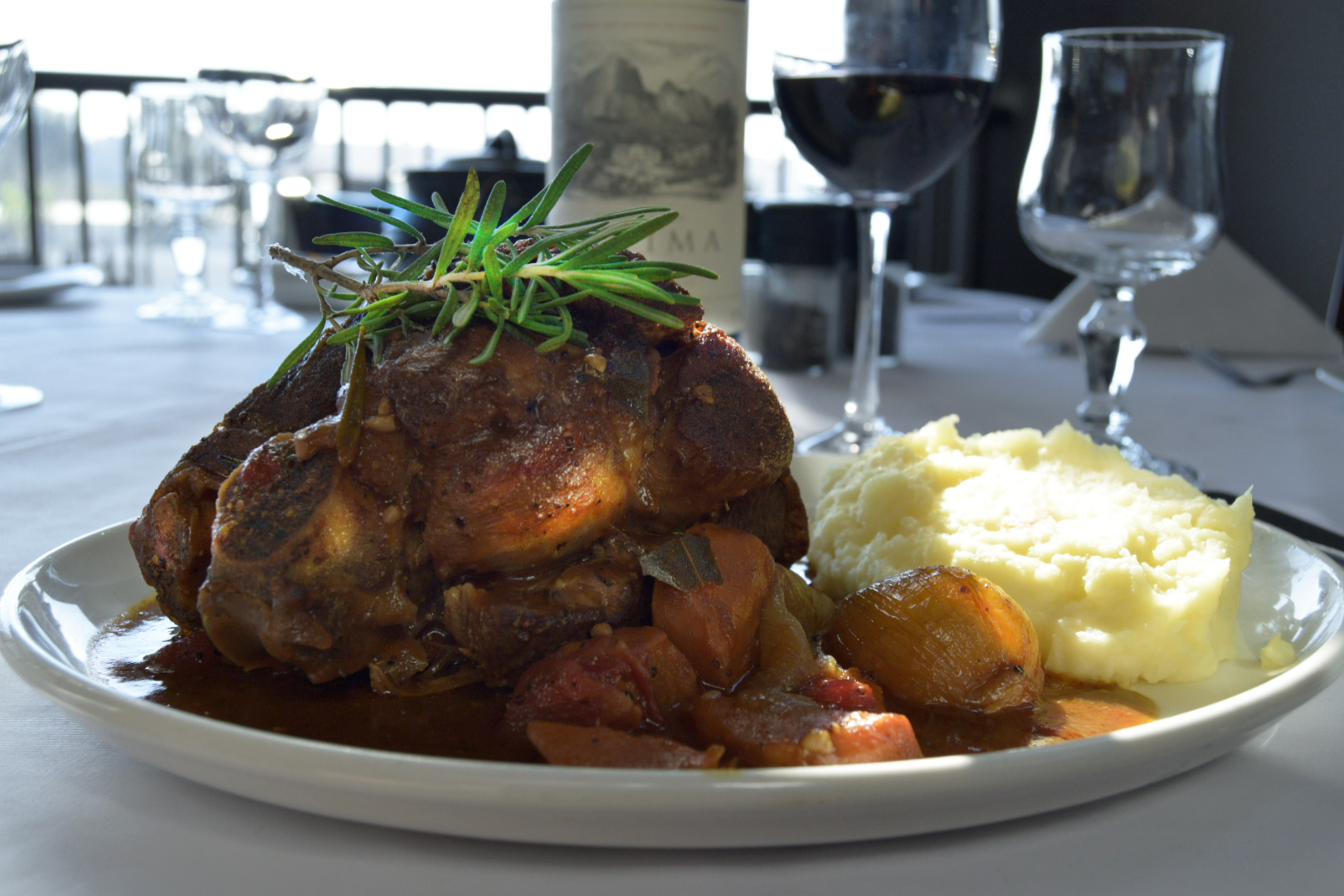LOCKDOWN HEROES
Awards honour those who kept restaurant doors open

They came with financial assistance, with legal help, with media assistance, with ideas, with hope. Some came with might. Some shone lights. It was not always a physical showing up. It was arriving with and at solutions to our country’s horrendous restaurant lockdown problems then. Let’s not forget.
Many unlocked their own empty restaurants, turned them into takeaways, into illegal bootleggers, food delivery services. Sometimes they took turns with other chefs as soup kitchens for the hungry, newly unemployed in the industry. They tried their best, tried anything, to ensure that their part of their economic sector would not fold entirely, that there was some life and so there could be salaries and subsistence for employees and their families, for suppliers who had no one to supply, even for car guards with nothing left to guard.
The public sometimes came to the empty restaurants in person to collect, masked, even protector-gloved, a take-home meal. Kerbside collections went some way to keeping kitchen staff working. Often people tipped as much as the delivery meal, to help. Others booked meals of the future, paying in advance.
Now we look back in baffled, sometimes time-confused wonder. But the real battles for the industry and its peoples’ survival was being fought by the Restaurant Association of SA (RASA), run by the feisty Wendy Alberts, often with no funds. And the others who threw in their time and resources to come to the rescue of all the empty restaurants. They fought mainly alongside her, on the government and sometimes municipal fronts. They just never gave up. Any success was hard won, little bit by bit, agreements forged and then ignored in the next set of regulations, forged again.
Alberts calls them all her heroes, the most “beautiful people”. There are hundreds. I only know a smattering of what they did and personally know few of them.
Some, like Ashton Naidoo of Mooney Ford Attorneys in Umhlanga, devoted almost all his time, every day, to fighting for restaurant people who’d been closed by the police, by landlords, by banks. Gamely, he says it was also thanks to the rest of the firm, because they took over his usual work while he dealt with the newly unusual, all pro bono. He was the ideal man with his experience in public law, labour and employment, insurance and general commercial law.
Early on he’d called Alberts and told her, “You’re just fighting the fight alone. Let me help you.”

Molly Malone’s cleverly turned their parking lot into a roadhouse when the bar and restaurant were locked down to the public. (Photo: Supplied)
At the time I’d ventured out to a pub type of restaurant that had cleverly turned their parking lot into a drive-in, with window food served to people safely enclosed in their cars, and actual movies on a big screen. I witnessed the blue light vehicle cavalcade arriving and then a pack of policemen shutting down and emptying the parking lot, the whole business “for holding a social gathering”. Within a few days it was open again, thanks to Naidoo. His name was constantly being mentioned by the desperate. In the Durban area where he lives, he says people knew his name better than they knew him. No wonder. He even had a slot on East Coast Radio during lockdown to help restaurants, their people and associates.
He laughs now about he and Alberts staying up nights, into the mornings for hours on the phone, especially when new Covid regulations were announced late at night, strategising. It wasn’t so funny then, when more strictures had suddenly to be dealt with.
But he does say he would do it all again “in a heartbeat” if required.
For Stephen Grootes, his beat was a helluva lot of media debate, which opportunities proved invaluable to the RASA cause during the succession of Covid-19 lockdowns and restrictions. Because the conversations were being had. The plights were highlighted. All the views were heard, reheard, differently heard, corrected, heard again, HEARD.
Nothing counts more than good media in such a situation. Grootes’ SAFM Sunrise morning show and his Newsfeed slot on Newzroom Afrika buzzed with the debate. As Grootes says, the story was moving so fast, there was always something more to be heard and seen. He realised it was valuable viewing and hearing. And it was fair. All sides had to be heard. Grootes is also a senior journalist with Daily Maverick.
“It was important to outline pros and cons and the restaurant industry was the best example of what the costs to us would be, how precarious livelihoods and the economy were.” Yes, they were entwined. “It (the restaurant industry) was the ultimate symbol then of what we could be looking at, at what expense to ourselves.”
Indeed, there were three million people to consider, then a great thing like an alcohol ban to our drinker culture. People can easily forget during high stress that this is and was all about real human beings. Of course, going to places like the Spur or Mike’s Kitchen wasn’t necessarily up there in the scale of media things. But I missed going out with my family to them.
That alcohol ban in particular pitched Lucky Ntimane straight into everyone’s homes via the media. There they were confronted by “the booze side of things”, willy nilly. He’s the chairman of the taverners association, vocal and persuasive in a considered and classy way. In Ntimane, RASA had a soulmate in the matters of lockdown and anti-alcohol resistance. As Alberts says, she and Ntimane “stood shoulder to shoulder, side-by-side” in opposing lockdown legislation that, for their people, would mean ruin. He was even there with Alberts at the Million Seats in the Streets campaign.
RASA and the National Taverners Association (NTA), which was later called the South African Liquor Traders Association (SALTA), “complemented each other”, says Ntimane. He was there to promote and protect the interests of taverners, shebeeners, bootleggers, liquor store owners, hotel owners, night clubs, restaurants, bed and breakfast owners, pub owners and all members, as determined in its constitution.
“We were left with no choice when our people could not put any food on their own tables. It became clear that the government did not value our side of the argument.” Ntimane was not only arguing for people who owned taverns but for the many associated people, like those who picked up bottles, those who made food nearby. And, as with the tavern owners, restaurant workers and owners, all the affected dependants.
Of the registered (with SAB) tavern owners there were 39,000. Direct employees numbered 250,000 with a further 100,000 indirect workers around the taverns, before even considering so many dependents per person. “These numbers outweighed many of the arguments against alcohol at the time.” Ntimane was quoted as saying then, “Just like Covid-19, poverty is a disease.”
“You know, our fight hasn’t ended – it continues,” says Ntimane.
Rockets was a large restaurant to be empty. The Rockets places are multistorey, multi-use affairs “and just work better on that scale” says Sean Barber, owner and CEO of the Rockets Group.
I was outside the one that used to be in Parkhurst on the day of RASA’s Million Seats on the Street campaign. Apart from the placards, the excitement, I wanted to photograph, even just with my cellphone, the previous minister of Tourism, Mmamaloko Kubayi-Ngubane, and Wendy Alberts leaving their meeting. Barber had sponsored their meal in his big empty restaurant. I missed the exit but the memorandum-handover meeting and long discussion about extending restaurant hours and lifting the alcohol ban was an excellent one, Alberts later reported emotionally. The first part did happen within a week.
Alberts could rely on Barber for feedback, for midnight advice and “he was always there” for her and RASA. Well, almost always.
Barber has come to know Alberts well, calling her Wends and saying, “She was a tiger when it came to getting onto radio and TV during lockdown and that helped people stick with her, to get behind her. You can always count on her. eNCA will never be the same.”
The thing was, he always seemed to be getting into trouble whenever he accompanied Alberts anywhere. “I nearly got arrested on that day of A Million Seats on the Streets. The police had warned RASA that all public gatherings were banned under disaster management legislation unless it was ‘normal business’. We had placards and mobs of people out and the minister upstairs.
“Then when Wendy went to the Union Buildings for her sit-in that lasted three days, to protest the liquor ban and the hours, I went with her. I was asked all sorts of threatening questions on the first day so didn’t go back. There we were in pouring rain, Wendy in one of those short skirts she likes to wear and luckily a huge umbrella.”

‘Rockets stands for choices and freedom.’ (Photo: Supplied)
“I lost seven restaurants but I also opened others”. It was dreadfully ironic because Rockets stands for choices and freedom. “Thank heavens we have her. Whatever happens, we can’t go back to those days.”
Zanele Mphathi, Corporate Affairs Manager of SAB, met Alberts on a hike for Mandela Day and they stayed in touch.
“Then, during lockdown, when 70% of the restaurant workers were unemployed, she came with these tremendous food hampers for families. That was amazing,” says Alberts. It was more than that. She even helped deliver them way out of Jozi, to places like Rustenburg. They were specially packed with foods particularly suited for whole families.
Mphati thinks back and says, “I knew something wonderful was being achieved when I saw how excited people were to receive them. It’s the nicest feeling being able to be helpful like that.”
Danie Matthee, CEO of OUTsurance, says it was a real privilege to be able to help. “To the actual restaurants that were insured with us we were paying out interruption claims. That was probably how we came to their, RASA’s, attention.
“Sjoe, it feels like a long time ago. April 2020. I got into contact with Wendy and signed a sponsorship contract so that they could carry on running RASA. That was one thing and the other was that we were able, through our own social media and marketing people, to create content for them on the social front. One slogan or hash tag we came up with was Dine Out Again. We had strong social media and RASA was also able to do quite a bit on their social media side.
“We used actual restaurants and their staff and suppliers.” RASA changed their marketing model at that point.
“It was a testing period for so many. Emotionally it was very daunting.” Matthee is quiet and then says, “Nevertheless it was an inspiration to us to see how these restaurant people were determined to make a plan and do things that they might never have done before, to save the jobs of their own staff and suppliers. And they had these empty places.”
When Saul Hurwitz of today’s Grillhouse in Rosebank got a few restaurant folk together back in 1994, like the News Cafe and the Mastrantonio people, they founded RASA. They were not dedicating anything like the time Alberts now does. They needed a representative association standing together when they were bullied by the likes of SAMRO, the music rights people, in those days. Today Alberts is ever grateful for his investedness, his sane and deep interest, his availability.

Saul Hurwitz’s Grillhouse in Rosebank succeeds ‘not only because of fine quality but because of others’. (Photo: Supplied)
“We restaurateurs of all sorts are a bunch of mavericks today. We all go in different directions with different opinions. We regard each other with suspicion and we’re stubborn. But we sure do band together when we have to and we really have done so over the last few years. I’m not sure what I’ve been able to do for Wendy other than support her and her massive capabilities. One thing I suppose was handy is that, having been in the business for so long, I’m very well connected and, with those connections, we were often able to reach a critical mass of influence.
“Going into the future, we have seen only good consequences from RASA and especially Wendy Alberts.”
On 19 May Alberts presented the RASA Rosetta Awards, part of the fifth Hotel and Hospitality Show in Sandton, the awards generally given to restaurants with the most excellent service. This year the idea of service was to the industry itself and Alberts wanted everyone involved to be a winner, because they were.
I have only been able to include some of Alberts’ “beautiful people”. But there are so many important others, like chef Liam Tomlinson, who galvanised restaurateurs from Franschhoek and Cape Town, with his end of the Million Seats and his Jobs Save Lives campaign. Like eNCA News and Melanie Rice for being available to give a voice to so many restaurants via RASA. Like Alex FM too. Like Dennis Matsane who helped turn Alberts’ PR campaign from something feminine to assume the more masculine tone that was its success. Like Pravashini Govender also from Distell, who helped with media. Like SAB’s Lisa Zoleka and her legal department. Like Duncan Heathfield from the KZN Chapter of Hospitality, Entertainment and Leisure Industries of SA, for information, also in KwaZulu, Dalene Joubert for information from her three restaurants. Like the previous minister of Tourism, Mmamaloko Kubayi-Ngubane who was always personally available. Like Aileen Lamb for the Eat Out Restaurant Relief Fund. Like Micos and also SAB for vaccination drives. Like Lee Woolf of Cape Talk for well, talk time. And like Stacey Halamandres of HSBC for just being the best human being to comfort and cheer Alberts on every day.
Big and small, they all came to the empty restaurants with what they had and are turning them into what Alberts calls the “beautiful industry” again. It’s been a mighty feat and still is. DM/TGIFood
Restaurant Association of South Africa (RASA), 011 705 2054/2897
Follow Marie-Lais Emond on Instagram @marielaisemond
The writer supports Nosh Food Rescue, an NGO that helps Jozi feeding schemes with food ‘rescued’ from the food chain. Please support them here.





 Become an Insider
Become an Insider
Comments - Please login in order to comment.